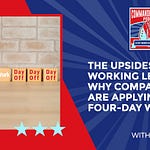When it comes to the insurance industry, InsureTech is the newest buzzword. Just like any other industry, insurance has to evolve, and they are doing that with technology. You have to use technology as a growth accelerant, but at the same time not be shackled by it. You have companies like RightSure, who are infusing InsureTech with humans so they can make the right decisions on the spot. Join Yuri Kruman as he talks to the Founder of RightSure, Jeffery Arnold, about harnessing the power of technology into the insurance industry. Discover how you can continue to innovate in your industry.
In this conversation, we explored the following topics:
What led Jeffery to hop into the insurance industry?
What technology can do to any industry if it is used as a growth accelerant
What does RightSure do differently?
RightSure is a tech-forward Insurance platform that helps people with all things insurance in 42 States. With their special Discount Discovery Technology, they can help people make the right choices.
What is that one question you keep forgetting to ask your insurance agent? Forget about the insurance; you get what you paid for.
What social inflation is and how supply chain interruptions can negatively affect a whole industry.
COMMANDER POD – Episode 25 – Jeffery Arnold Of RightSure
The Human Face Of Insurance
I talk to people from very different walks of life. They're usually running a company or leading a movement from very different kinds of industries. We are very fortunate to speak with Jeff Arnold of RightSure. Welcome. Please tell us about yourself.
I am so excited to be here. I've been looking forward to this for a while. We are a technology firm in the insurance vertical. I say that word lasts because it has a tendency to make people young and their eyes roll back. I can assure you, readers, this will not be boring. We'll keep it high energy. Our industry is like every other industry. It has its trials and tribulations and ways to challenge your leadership skills and life skills. No matter your industry, there are some commonalities and things that we can align on and learn from each other. I’m excited to be here.
I was reading your website and was like, “This is not a typical story.” Give us a few threads because I found some things that I didn't expect. Where are you from? How did you get into this hot mess of an industry?
I'll try to be succinct, so it's not just Jeff’s show but try to resonate with some of your readers. I'm from a very small town in Western Kentucky. The closest big town to me would be called Hopkinsville. I was born in a place called Cadiz. It's a sister city to a place in Spain called Cádiz. My family grew up in a city called Versailles, the sister company in France is Versailles. Interestingly, my father, his father, grandfather and great-grandfather were all ministers.
I'm the first one in four generations not to preach or be a man of the cloth. That's the short backstory there. Later in life, I was living in North Hollywood, trying to do comedy enacting like many people. I was not super successful at it but it taught me a whole lot that applies to leading people, the space we're in and the technology and insurance space. There's a quick encapsulation. I’m happy to go backward and unpack any of that if you want but I also don't want your readers to be stuck going down my life journey.
That's the whole point of this. We're trying to know things that are behind the PR bullet points. You mentioned the Hollywood part. That's an interesting one. A lot of people are Go West, young man. I could see acting there. You have a good voice inflection. You could have made it. How did you get into insurance? You went to Hollywood. I don't know if it was the right part of Hollywood, maybe not but you got out. Somehow you made it to Arizona. Your mom was living there.
Like any young man needing to eat, pay rent and drive a car, I needed a job and had to do something. I had three months where I had no gigs lined up. I was doing a lot of stage work and drama stuff but nothing on the calendar. I went back home to Tucson, where my mom lived and entered an ad for the most cliché of things called, “Insurance salesmen wanted.”
If you get past the boring part of insurance, it's a really sexy, exciting, and awesome industry.
It was quite interesting because who knew that I would drink that in and be enamored with the selling of legal contrast, how we transfer risk and people pay a fee to do that. It's fascinating. If you get past the boring part of insurance and the expense of it, it's a sexy, exciting, awesome industry behind all that. Many years later, here we are.
Let's unpack that because most readers are saying something between, “I didn't know. WTF.” In my experience in insurance aside from being a consumer, you got your rental insurance, house insurance, property-casualty, health, dental and vision that have in your benefits. From a tech perspective, there's quite a lot happening in the last years around InsurTech. Maybe you'll help us get a better glimpse into what's going on there.
You've even got companies like Lemonade that are reinventing what insurance is. They give charity based on what they made, very interesting things. Insurance is not the 1st or 10th industry I think about. That's innovative. What has been going on in insurance over the last years? With most interesting companies like Policygenius, what are some of the most exciting developments that people should be aware of?
I'm a contrarian because I would submit to your readers that my beloved industry has always been tech-forward, tech-enabled and an early adopter. If I can take you back to the last century, these are some absolute facts that I talk about in some of my books. Insurance companies were the very first companies in the ‘50s and 60s to pull people together in the large cubicle-like environments that you see now.
They were the leaders in that space. They were the first to aggregate rolls of typewriters to issue policies and the first to do computers like that. They ushered in the fax machine piece because insurance companies would do all these faxes back and forth. They were on the forefront of how you would upload in the ‘90s of policies and stuff.
It wasn't until the mid-2000s when somehow this new, sexy, enticing, intoxicating word came about called InsurTech that everyone was like, “It is a tech-forward industry.” It's always been an industry of innovativeness. It's never been surrounded so much by the tech piece. Admittedly, like any industry, some pockets are a little dinosaur-like, old and not tech-forward. As a whole, it's always been something challenging. The status quo is always innovating and evolving.
With respect to how it is now, the great thing about any industry, no matter what industry you're in, there is always an opportunity for disruption and innovation. Most of that comes externally. Not somebody that's been doing it for 30 or 40 years has some brand idea. It's some kid somewhere in his parents' basement. I don't mean anything derogatorily when I say kids.
Some kid somewhere is tinkering with the algorithms, models and code that is going to revolutionize how insurance is bought, sold or thought about. That's what's happening. Little pockets are all over the place. In every industry, it's an exciting time to be alive and leading, growing and starting a company because there's so much change thrown at you every single day, challenges every leadership skillset you have, every preconceived management idea that you have and your internal growth set. It always gets refined every day.
Thank you for that overview. It’s very helpful. We were talking about a few companies that you might be particularly excited about in terms of what they're doing. There are a bunch of companies also based in the US. What are they doing that's so fresh? We want to dive a little bit deeper into what InsurTech is. What are some of the things that are relevant for non-insurance people?
Briefly, on this InsurTech thing, everyone wants that coveted title of InsurTech because somehow, that enhances their valuation or gives them a better placement in the consumer's mind. We'll talk a little bit about a bunch of companies that I'm super excited about. A bunch of them are from Israel. Technology and insurance space or InsurTech as it's called now, we wrote a book on the tech space called, Tech-Enabled, Tech-Forward or Tech-Shackled. It’s not a plug for my book but that's how I mentally assign these things. Everyone wants to be an InsurTech.
If your readers aren't focusing on the insurance industry, focus on your industry. It is very easy to become tech shackled in your rush or quickness to adopt tech or use tech for the sake of using tech. You can become very tech-shackled quickly because it might not work in your customer service, consumer-facing or accounting space. Adopting tech for the sake of tech to get the tech is the quickest path to failure.
The charge is no better, the same with the tech stack. It's not going to solve your people's problems.
Great companies use technology to help create growth. They don't use it as the end all be off anything. It is an accelerant to growth. It cannot solve your human problems, people issues or leadership issues. Tech is not a solution for that. That still needs a different skillset. That's the first thing about tech in our space. It's no different than any others. With respect to what you said about what's going on, I'm excited about a whole bunch of things.
A lot of them are quickly coming out of Israel. A lot of pay-by-mile disruption for the United States and North America. If you're tired of paying these rates, which the pandemic said, “I drive less. I want to pay less.” In our industry, it's called telematics. It’s crap work. It makes consumers go cross-eyed and sounds like I'm going to get messed over. It's paid-by-mile or pay-per-mile. A lot of companies are doing that.
No matter what industry you're in, there is always an opportunity for disruption and innovation.
Israel has a union company that does that for motorcycle insurance. It's called VOOM, Pay Per-Mile Motorcycle Insurance. There's a lot of habitational. Another crap insurance word, it means apartments and hotels that are revolutionizing how that's done. There's a company called Sensa that hooks into your car. The moment there's an accident, it cues up this triaged that helps you get everything that you don't want to take care of. They handle. It’s a concierge-type level of service that consumers want and will pay for.
To toot our horn, RightSure, my firm, we're the most awarded insurance firm. What we're doing is trying to continue to redefine how our technology integrates with our famously friendly humans because we're known first for our famously friendly humans and how we wrap technology through that process, enhance the easiness and wow the consumer on every call and every interaction, every single time. There are all kinds of good stuff. When we're talking about tech, I've been challenged the same way because we got to get the right tech stack.
I've got these little post-it notes around me everywhere that say, “Tech is only to accelerate growth. It's not a replacement for that.” Even all the tech we're using in our discount discovery technology finds ways to save people more money than they've ever had because we have these backend algorithms. It's cool and unique but it doesn't replace humans or management and leadership sets.
I want to unpack a couple of things. I want to dive a little bit deeper into RiteSure. What do you do? What's the product and the service? How does it help people? This is pretty important for our conversation.
The simple elevator pitch is this. We insure everything from pets to jets. That's what we do. We are consumer-facing. We are direct to the public. We are cross iBroker and iMGA. We have access to hundreds of insurance companies on our platform and then we have our insurance products too. The goal is everything from pets to jets but why RightSure is different than anyone else is the two things. Our discount discovery technology, which is wrapped into, is called Rateguard.
At every renewal, what happens generally? You go around 1 to 2 years in your insurance and then the rates go up. Our technology keeps a watch on that 45 days before you renew. It says, “We found these other fifteen companies versus the one you have now. Stay where you're at, fine. We have new discounts here or whatever you want to do.”
It's a done-for-you service. That's our discount discovery technology with Rateguard. We are famously friendly humans. We invest an insane amount on the human capital side to make sure our people are fully developed and engaged in giving them the tools and the resources to make decisions on the spot and wow people. If you've called anybody, internally, our CFO has this mantra. She's like, “There is no ATM anymore. You're on hold eternally or you get somebody that doesn't have the skillsets.”
We spend an insane amount of time, resources, intention and energy on listening to calls and using artificial intelligence to help our people improve themselves like great athletes. It's paying off in dividends because we're having fantastic hockey stick growth year after year. It’s no credit to me but just the fact that we have not said, “We're not just an InsurTech but we're infusing that technology with our famous friend, the humans.”
I feel like we've hit upon something critical here because, from an HR perspective, I keep seeing this problem over and over. “We're growing like bonkers. We need to do customer service. What do we do? Let's plug into vendors that have associates in the Philippines, Vietnam or Latin America.” It's famously spotty, well known and has high turnover. People are always looking for something that pays a couple of bucks more. You have the opposite approach, which is, “We're going to bite the bullet.” I don't know why people think of it that way.
“We're going to hire people in America and train them. We're also going to hope for the best. We're going to maybe try to recruit those Gen Zs.” You're sitting at a golden intersection here. You found a formula that works well. Let's go a little bit deeper into the people management philosophy side of things, not just philosophy but the practical elements of it. Tell us what your secret sauce is. Something's working well here.
I would love to take credit for this. I'll share the story with you but I want to be very clear that this is not some Jeff Arnold epiphany. It is a good fortune to stand on the shoulders of fantastic men and mentors before me. In those rare moments in life, when you shut up, listen and drink in knowledge from someone else. I've had some powerful mentors. They weren't meant to be mentors but I shut up and listened to them whenever they talked and then I got to stand on their shoulders.
One of those was a man named Michael Gerber and he's written several books. One is The E Myth: Why Most Businesses Don't Work and What to Do About It. He is the E-Myth CFO. I had the opportunity to sit at his feet for several years weekly and learned from him as well as some others. What I learned in that and the big takeaway is, “You have to figure out how to replicate yourself.” The reason why so many people have problems in call centers is they want to delegate it off. It's a problem. Go solve it. It's a cost thing. Increase sales and you solve that.
We spent two years. I can relate it to something cool because people can relate to this. You've heard of Airbnb. When they first started, they were in California. One of their investors or something challenged them that said, “Where are your renters at?” “They're all in New York.” “Go to New York.” “No, we're a technology company in Silicon Valley.” “Where are your customers?” “They're in New York.” “Go to New York and understand.” That's how they develop their systems and processes. They got out of there until we got into our call centers. We took these calls.
This is powerful because I challenge you to do this in your business. Our calls can only go 23 ways. Once you know the 23 ways they can go, then you can backfill a decision tree where calls scripts to go along. Not to sound robotic but you're famously friendly humans and you can teach and say, “It can only go 23 ways. These are the ways it could go.”
It is very easy to become tech shackled in your rush to adopt the tech. Using tech just for the sake of using tech is the quickest path to failure.
There are always crazy one-offs but mostly 95% to 98% of the time, it goes this way. Once we're able to do that, then we could refine how we would respond and wrap the technology around that workflow. It started with, “What is the consumer ask? Let's build it around that.” Instead of saying, “This is what our technology does. Make the consumer interact with that.”
That's been pivotal. Gerber would talk about his books all the time. I can still hear him saying when I'm sitting in the conference room, “It will never work if it's dependent upon you. You've got to find a way to replicate it.” I was fortunate to understand that might not have meant technology but that meant a system. You can use technology but you have to have a system for it that is helping the consumer, not forcing the consumer through your mouse maze.
Here are a couple of important nuggets for me here. Number one, we talk about technology ad nauseam. We've almost learned to say, “This is a panacea.” It never has been a panacea and never will be. Technology is neutral. It can be used depending on the motivations of the user. It can be used for good or for bad, correctly or incorrectly but technology by itself is a medium. It's a means to an end. Nothing more. Number two, I like this. This is an underappreciated element of running a business. They say, “You need an accountant.” “I'm a creative type. Take this off my plate.” It’s a big mistake.
If you don't understand your numbers, I don't care how challenged you are in terms of accounting. I'm not very good at this stuff. I didn't study Accounting but I have been doing my taxes for many years and taxes with my wife for years. We even got two accountants because it's between two countries. It's like, “It's serious.”
Before you can write it off and say, “My accountant got this,” your accountant needs your stuff. It's got to have your QuickBooks. You've got to go through and categorize things by where that's coming from and where it's going. Is it business or personal? Like it or not, whether it's accounting, finance or people, you have to know on a somewhat practical level what is that and how that work.
You have to go and do it. There's no magic. There's a reason why a lot of tech companies, in particular, go public and make it big. Sometimes one of the founders leaves and then comes back later because there's drift. There's this thing of, “It's a professional manager.” If you built it and infused the company with that, “I can do it,” kind of ethos, it doesn't mean you can do it the best but you have that sense of ownership, “Before I can hire someone. I need to know what we do here. How do we do it? What's the process?” You train someone and then give them the process.
You can hire a manager to oversee that process and its implementation but you have to have that initial push. There has to be some fundamental sense of, “I'm not an accountant but I can read a balance sheet. I can understand what's going on there.” I appreciate that you brought this up. It's critical whether you're starting a business, growing it or running it. It's public. It doesn't matter. You have to have at least a basic understanding.
It's not the silver MBAs are the best leaders of companies. They maybe have that foundational knowledge but they didn't have that much to learn by themselves from the beginning. Thank you for bringing that up. It's underappreciated. This is an important point. We talked a bit about InsurTech and how tech can enable us to see easier contracting or improve things like market access, pricing and renewals to take away a lot of friction from the process of getting insurance.
It's worth noting that insurance is something that is the law. The two are closely connected. It's always in the background. You make a move, open a company and hire someone. All of these little corners and penance, everything has some element of insurance, risk and law involved. It doesn't mean you should be scared if you don't understand it. It means that you should probably at least understand what the risk is and maybe how you could mitigate that risk. Insurance is like an invisible texture to everything. Before we talk about tech, insurance by itself deserves a bit of a spotlight.
Having and being blessed by this industry for many years, at its core and ethos, we sell legal contracts. We offer consumers the ability to transfer their risk at a time of loss to someone else for pennies on the dollar or nickels on the dollar sometimes, so they don't have to worry about that. Also, we give the majority of the consumer public the ability to buy a house that they can't afford to pay cash for because our legal contracts step in and say, “We'll make everything good to the bank if something happens to the house,” or to buy a car because if they can't pay cash for it, we'll say, “We'll satisfy the bank's assets financially if something happens to it.” That's what's cool about it.
On our side, that's what we get all geeked out about. That's why once someone gets into the insurance industry for three years, they never leave because there's this cool mind game of all these analytical and aggregated things that happen on the backside from an actuarial standpoint. Admittedly, the buying public only cares about one thing only and it’s the price. Companies spend billions of dollars trying to make their ads cute, funny or based on price. Forget about insurance. In any industry, you know that you get what you pay for. It’s an unequivocal fact. Somehow, mentally, everyone's been reprogrammed in our space to think, “It's about how cheap you can get it. It's all the same.”
That would be the number one mistake that business owners or individuals who purchase insurance make. You get what you pay for in our industry like anything else. If you've got a cheap policy, it could be that instead of 60 pages long, it's 80 pages long. There are hidden exclusions in there. Consumers go and sue. It's a good thing to think about it, specifically because we're talking about businesses. Your focus in helping businesses is that most small businesses are based on price. They want this to be a fifteen-minute transactional conversation and move on. I would challenge you. The next time you're talking to your insurance agent, suspend the price and ask this question because this is the differentiator. What is not covered in what you're selling?
We tell our agents, our famously friendly humans, to say, “We know they're always facing trust versus suspicion.” They want to talk to someone to tell them about insurance but the person buying it is like, “I suspect you're trying to sell me more.” “Nope. We'll sell whatever. We'll sell you the exclusion field cheap policy if you want or the more expensive thing where all everything's covered. We'll be happy to talk to you in claims time because there are no problems.” Pivot your conversation. Extend it from 15 minutes to 1 hour. Ask your agent broker, “What's not covered?”
Here's why that's important. If you were at a small business, you might need cyber or ransomware coverage in case someone hacks your servers or steals all your stuff. If you've got 40,000, 50,000, 80,000 or 100,000 clients, you may have to buy credit monitoring software for them. If you don't have these endorsements in your policy, it's not coming and covered. It's coming off your balance sheet or your cash or you're going to be out of business.
You have to figure out how to replicate yourself.
There’s wrongful termination, sexual harassment and all kinds of things that are not automatically included in that cheap insurance policy. This can put people to sleep but the big takeaway is to stop asking how much and start asking your agent, “Tell me what's not covered. Give me some scenarios it's not covered.” You then understand why they might be trying to sell you an endorsement for cyber, ransom or something else. You don't have to buy it. Be aware. Like every industry, you get what you pay for.
This brings me to a little bit different and more future-looking kind of question. Let's take a step back. We have the internet of things. It has been around for a while. In theory, it's supposed to decrease the risk of theft or hacking. We have things like self-driving cars. We had on the show Omer Keilaf of Innoviz. They've created LiDAR, which is very advanced for self-driving cars. Without getting too technical, a lot of cars have already been tested on the road that is driving themselves. They have the LiDAR to prevent accidents.
We're talking about insurance and thinking, “AI is another force. Recession is coming.” There are a lot of factors. A lot of things are swirling. If you're working in insurance, you think a lot about these things because you're trying to predict, “Where is the market going? What are the relevant types of insurance that I can offer to someone who owns a business or a house?” You have to pay attention to what's coming because you have to get ahead of it.
In a very interesting way, being in the insurance industry, you're perhaps even much keener than many other industry analysts about what's coming. What do you see coming down the pike in terms of recession and what do business owners need to be aware of aside from things like workplace issues and cybersecurity? Give us the grand tour.
I might take a small detour because something popped up in my tiny brain when we were talking about that. First of all, most insurance premium dollars at some point somehow lead to Lloyd's of London, the famously awesome organization in England. In that space are the most awesome actuarial minds all along the food chain that you've ever imagined. They're looking at 1, 5 and 10-year trends. Admittedly, self-driving cars and safer things on the road should push premiums down. Everyone should pay less.
However, here's a truth bomb. Two quick things and I'll geek out a little bit. This is the detour part. What we have in our industry, and this is important, is called social inflation. What it means is this. Put aside the fact that every natural disaster was a $1 billion check for some insurance company when it used to be $200 million, $300 million or $400 million. They have to get more premiums to pay this.
We have social inflation that says if anyone is hurt, it used to be $20,000, $30,000, $40,000 or $50,000. Social inflation expects the insurance companies to write 6 and 7-figure checks and everything. Combine that with an accelerating litigious society that says, “People are buying cheaper policies and finding them excluded so I'll sue.” The ability of cost to defend these keeps increasing. I'm not saying consumers or insurance companies are bad. It's just real.
Social replacements, judgments are higher. Everyone wants to sue because they got cheap and thought everything should be covered. There's this huge disconnect. The other thing that's very powerful is that anyone that's been in an accident not so long ago goes straight down in narrow car insurance based, which can be very boring. Let me tell you what's crazy in our space with supply chain interruption. This is a geek-out but in our world, it's a great dinner table conversation that may or may not be here.
You take a small accident. Let's say the vehicle is not total. Ordinarily, you would go and get it taken care of. If you have rental car coverage, they will take care of it but all policies have limits. In most rental car coverage policies, if you have it on your policy bought something cheap, you probably don't. Most rental cars cover for 30 days or $900, whichever comes first. That's typically what they do. However, enter 2022. If you take a car to a shop, they might not get to the park for six weeks. It's a three-week backlog because they don't have anybody to work on it. You could have a simple car repair that takes two months.
You're out of a rental car for a month. Who are you mad at? Were you mad at your broker or your insurance company? That's the coverage limit. The reason to bring it up is it is rampant. People only hear the bad side like, “My insurance companies screwed me.” Here's why. The policy language says we have to pay for 30 days. We're doing that. If they can find a rental car, there's a big glut of rental cars too. It's crazy how the supply chain is impacting everything else but also our industry. You can't get the replacement parts or the chips. There are not as many people who are qualified to work on them. These cars are sitting longer and there are fewer rental cars. You can see the perfect storm brewing in our industry.
Social inflation, the lack of ability to get parts, coverage limits on legal contracts that are being paid but if you're the insured or the person that's been hit or involved in the exit, you don't care about that. You want to get to and from work. There's the disconnect. It's a narrow path to take your readers down. It's powerful for people to understand our industry when they're not consumed with anger or rage over being involved in it. They can take the 30,000-food approach and be like, “It's not just that I can't get the food I want at the grocery store. I can't get infant milk.” It's happening everywhere.
My main professional interest is essentially behavioral economics. Let's look at Steven Levitt’s and Taylor's work. What can we do from a societal perspective from a policy level? That's very interesting. What laws do we pass? How do we incentivize the right kinds of behavior? We don't talk much about insurance companies doing exactly that kind of engineering. If you think about it, it's behavioral engineering.
It's not superstitious by design but the effect is that when you have this potential friction, whether it's actual friction of your car hitting someone else's or you're buying something new and something can happen, it's a very important way to look at any interaction between two people or people in property. It's a much longer and deeper conversation but for me, that's one maybe underappreciated way to look at insurance, the function that it has in society. Maybe we should do another show about this.
I would welcome that so they can stand on our shoulders as we stand on other people's shoulders. I'm in that last phase. The 1st phase of your career is where you're learning, the 2nd phase is where you're earning and then the 3rd phase is where you give back. That's the space I'm in. If it's philanthropically or with knowledge, transfer that to the next piece. We'd love the opportunity to connect again.
In any industry, forget about insurance. You get what you pay for.
I need to expand my question in general about how their work relates to behavioral economics because I feel like there's so much there that's hiding in plain sight. My focus is not on society at a policy level but more on an internal control side of things. How can we create a behavior economic ecosystem within our minds to incentivize the right kinds of behavior, whether that's for health, mental matters, dealing with other people or bigger questions about God or the universe?
One of the most important things that I like to ask each of my guests is any element of wisdom that each guest can share around any or all four of those conversations. You've given us some golden nuggets about insurance and why it's a lot more interesting and profound that we give credit to it as an industry. What would you give us for all of those four conversations?
What popped into my mind right away is what you go with. It's a simple phrase, “There are no ordinary moments.” If you think about how prophetic and profound that is, be in this moment, think holistically about why you're here, what you're doing and what you're trying to accomplish. Apply that to your business, personal life, personal growth and family life. Understand that there are no ordinary moments. There are very few brief moments around the dinner table when you have to give to your family. There are very few brief attentive moments in the conference room when everyone's listening to you. Be intentional about those moments and take the most from them.
That goes a bit toward maybe situational intelligence, not just emotional or declarative intelligence, how smart you are but saying, “I don't always know why I'm in this particular place at this moment with this particular people but thank you, God and universe. What am I meant to learn? How am I meant to get across value?” That's a critical piece. I read a lot about that as well.
Jeff, thank you very much. This has been a true pleasure to speak with you. I don't think many people can bring insurance to life but you've certainly done that. You've done it incredibly well. I appreciate that. I would love to have another conversation further, a little bit about the behavioral economics side of insurance and how that works.
Thank you so much. It's been a pleasure. I would welcome an additional conversation.
I believe you've written a book and you mentioned three categories. Tell us what your book is and where people can find it.
I have five books. I've been fortunate that four of them are bestsellers on Amazon. The easiest place is my website, which is JeffArnold.com and then for my company, it's RightSure.com. Thanks for the opportunity to talk about those.
Thank you very much. Let's speak again.
Important Links
LIKE WHAT YOU HEARD ON THE COMMANDER-IN-CHIEF PODCAST?
Leave a Tip :) [$10 ] / [ $5 ] / [ $1 ]
—
Executive Coaching Office Hours (EXCLUSIVE FOR READERS)
Ask me ANYTHING career- or business-related for free, 1-on-1 (REALLY)
Click the link to schedule a time.
—
Are there any other subjects you want me to cover? Hit “Reply” and tell me!
I love hearing from you guys :)
—
If you enjoyed this newsletter, please forward to a friend (or 5 :) or someone you feel would benefit from reading it!
Yuri Kruman
+1 (347) 415-0265 (Whatsapp)

















Share this post